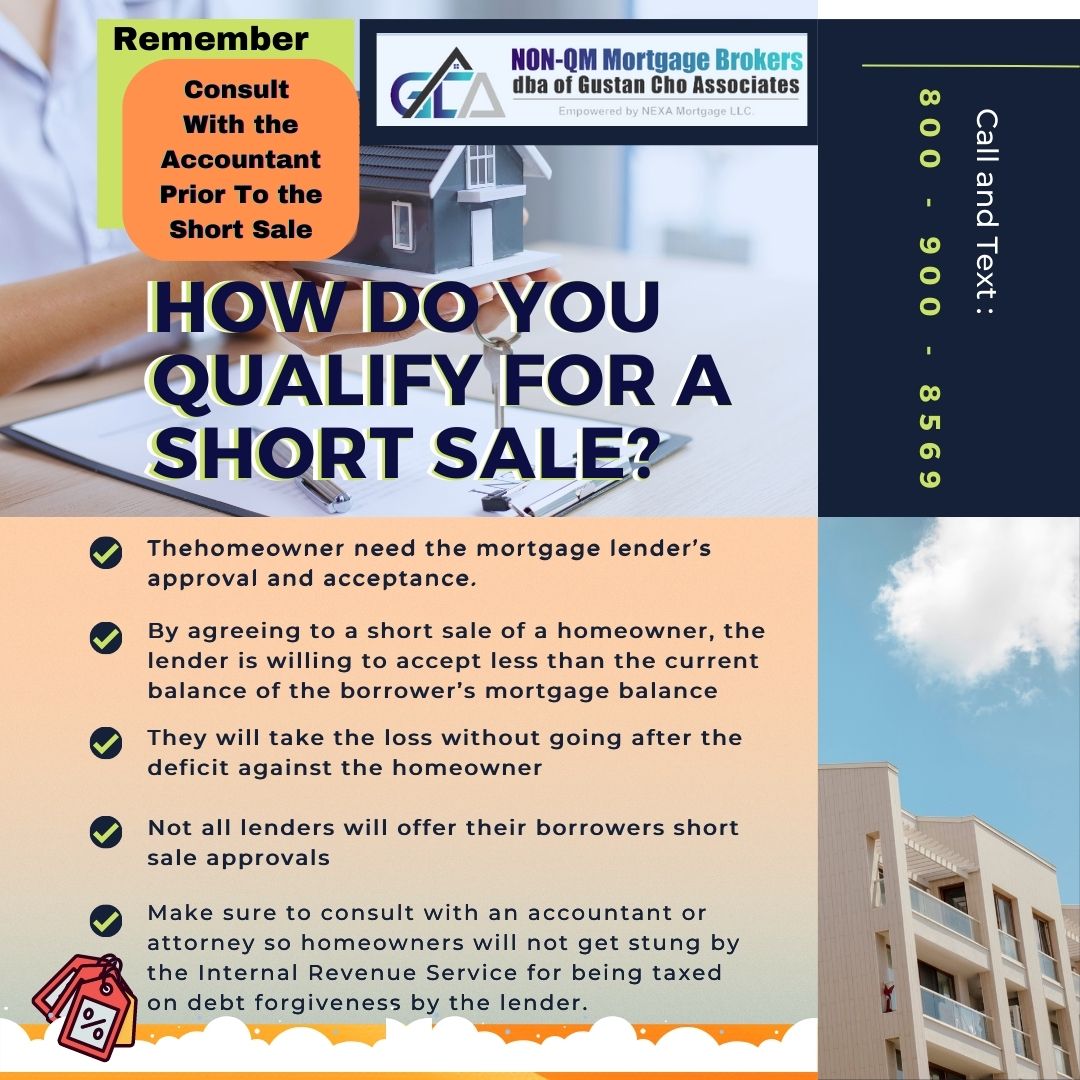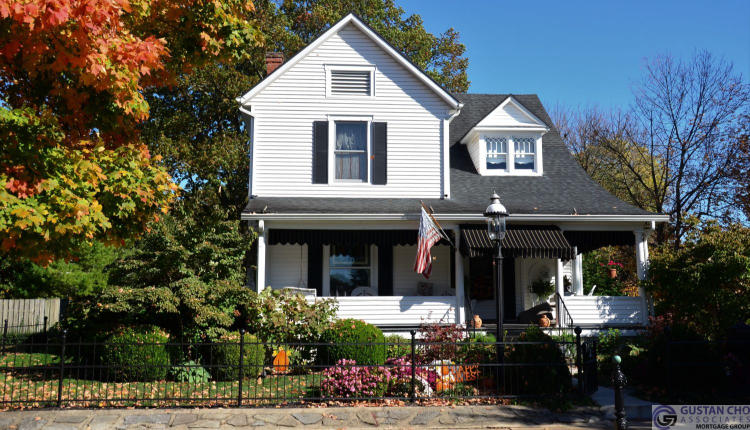Short Sale Versus Foreclosure Mortgage Guidelines
This guide will cover the mortgage waiting period guidelines after a short sale versus foreclosure on government and conventional loans. There is a difference in the waiting period requirements after a short sale versus foreclosure on conventional loans. There is a mandatory waiting period to qualify for government and conventional loans after the following:
- Foreclosure
- Deed-in-lieu of foreclosure
- Short Sale
Many folks who are finalizing their housing event and need to give up their homes often get confused about deed-in-lieu of foreclosure, foreclosure, or short sale. There is a big difference between the three types of housing events when qualifying for both government and Conventional loans. There is a difference between a short sale versus foreclosure regarding waiting period requirements to qualify for conventional loans.
What Is a Short Sale Versus Foreclosure?
A short sale is when a homeowner can only sell their home below the mortgage loan balance. This often must be done because the home’s value is lower than the mortgage. A short sale is when a homeowner sells the property at a price below what he or she owes their lender. This is done with the lender’s blessing. This is because they can no longer afford their monthly payments. Wendy Lahn of Non-QM Mortgage Brokers said the following about the waiting period after a short sale versus foreclosure:
A short sale is an alternative to foreclosure and is a much better choice for homeowners losing their homes.
A short sale alternative to foreclosure. Homeowners who can no longer afford mortgage payments should consider a short sale. In some cases, homeowners who are not delinquent on their mortgages qualify for short sales. This is because they have overextended themselves or have lost their jobs. Other situations are because they had a major reduction in their household incomes, where they can no longer keep up with their current home loan payments.
How Do You Qualify For A Short Sale?
For a homeowner to be able to make a short sale, they need the mortgage lender’s approval and acceptance. By agreeing to a short sale of a homeowner, the lender is willing to accept less than the current balance of the borrower’s mortgage balance. They will take the loss without going after the deficit against the homeowner. Not all lenders will offer their borrowers short sale approvals. A lender can opt to foreclose instead.

Consult With the Accountant Before the Short Sale: Before pursuing a short sale, consult with an accountant or attorney so homeowners will not get stung by the Internal Revenue Service for being taxed on debt forgiveness by the lender.
Short Sale Is Alternative To Foreclosure And Short Sale Process
Every lender has their short sale processing system. In general, homeowners have decided that making a short sale on the home is the route to take. The homeowner needs to contact the lender and speak with an agent. Wendy Lahn of Non-QM Mortgage Brokers and an attorney said the following on how to request a short sale mortgage from your mortgage servicer as follows:
Take notes when talking to the lender. Document the date, time, and notes of the conversation. Homeowners may get transferred from one department to another. The lender representative will probably require short-sale applicants to write them a letter of explanation on why they are seeking a short sale.
Homeowners will probably need to write a letter of hardship that they can no longer afford the home due to extenuating circumstances such as a loss of business, a job, or medical reasons. The lender will also require that borrowers provide them an asset, debt, and income information along with recent bank statements.
How Lenders Determine The Market Value of Home
Most homeowners seek a short sale on their property because they cannot sell their properties. After all, the mortgage balance is higher than the market value of their property. Ronda Butts of Non-QM Mortgage Brokers said the following about obtaining the value of the property for those thinking of making a short sale:
Homeowners will need to provide a market analysis of their property which any real estate agent can help with. Homeowners can provide a recent appraisal of their property. Homeowners can order a Broker’s Price Opinion (BPO) in lieu of a home appraisal.
However, homeowners will most likely have to pay for the appraisal. Once homeowners get approval from the mortgage lender for the short sale, they can list their property with a realtor.
Listing Property And Real Estate Purchase Contract
Once the property has been listed and get a real estate purchase contract from a potential home buyer, the contract will need to present to the lender for approval or counteroffer. The mortgage lender will be the party who decides to accept the offer or not
Once the short sale is finalized, the waiting period will start for the homeowner to qualify for another mortgage loan. The waiting period after a short sale for an FHA-insured mortgage loan is three years from the date of the settlement statement.
For a conventional loan, there is a four-year waiting period to qualify for a mortgage after the short sale date.
Qualifying For Government Mortgage After Short Sale Versus Foreclosure
All government loans (FHA, VA, USDA) treat short sale, foreclosure, and deed-in-lieu of foreclosure the same when qualifying for home loans after a housing event. However, a short sale is the best route to go. The reason is the waiting period required to qualify for government loans after a short sale is three years (VA loans are a 2-year waiting period after a short sale, deed in lieu, or foreclosure) from the short sale date—Alex Carlucci of Non-QM Mortgage Brokers, Inc. explains how the waiting period after short sale versus foreclosure works:
The waiting period clock does not start until the foreclosure and deed-in-lieu of foreclosure have been recorded. If the lender grants a deed-in-lieu of foreclosure, it may take months or years before it is recorded and transferred out of the borrower’s name. Same with foreclosure. After the property has foreclosed, it may take some time before it is recorded out of the homeowner’s name. The waiting period will not start until the date the homeowner’s name has been transferred out of the deed of the property.
With short sales, the waiting period clock starts the minute the property has been sold, reflected on the Closing Disclosure (CD). This is why qualifying for a mortgage after a short sale versus foreclosure is much more beneficial for those who want to purchase a home later.
Qualifying For Conventional Mortgage After Short Sale Versus Foreclosure
Fannie Mae and Freddie Mac are the two mortgage giants that set mortgage guidelines on Conventional loans. Fannie Mae and Freddie Mac have different waiting periods for a mortgage after a short sale versus a foreclosure.
There is a four-year waiting period after a short sale to qualify for conventional loans. There is a seven-year waiting period after the recorded foreclosure date to qualify for conventional mortgages. There is a four-year waiting period after a deed-in-lieu of foreclosure to qualify for conventional home loans.
Fannie Mae and Freddie Mac classify short sales and deed-in-lieu of foreclosures differently than standard foreclosure. Homebuyers who need to qualify for a mortgage with a mortgage lender with no lender overlays can contact us at Non-QM Mortgage Brokers at 800-900-8569 or text for a faster response. Or email us at gcho@gustancho.com. The team at Non-QM Mortgage Brokers available evenings, weekends, and holidays seven days a week.







